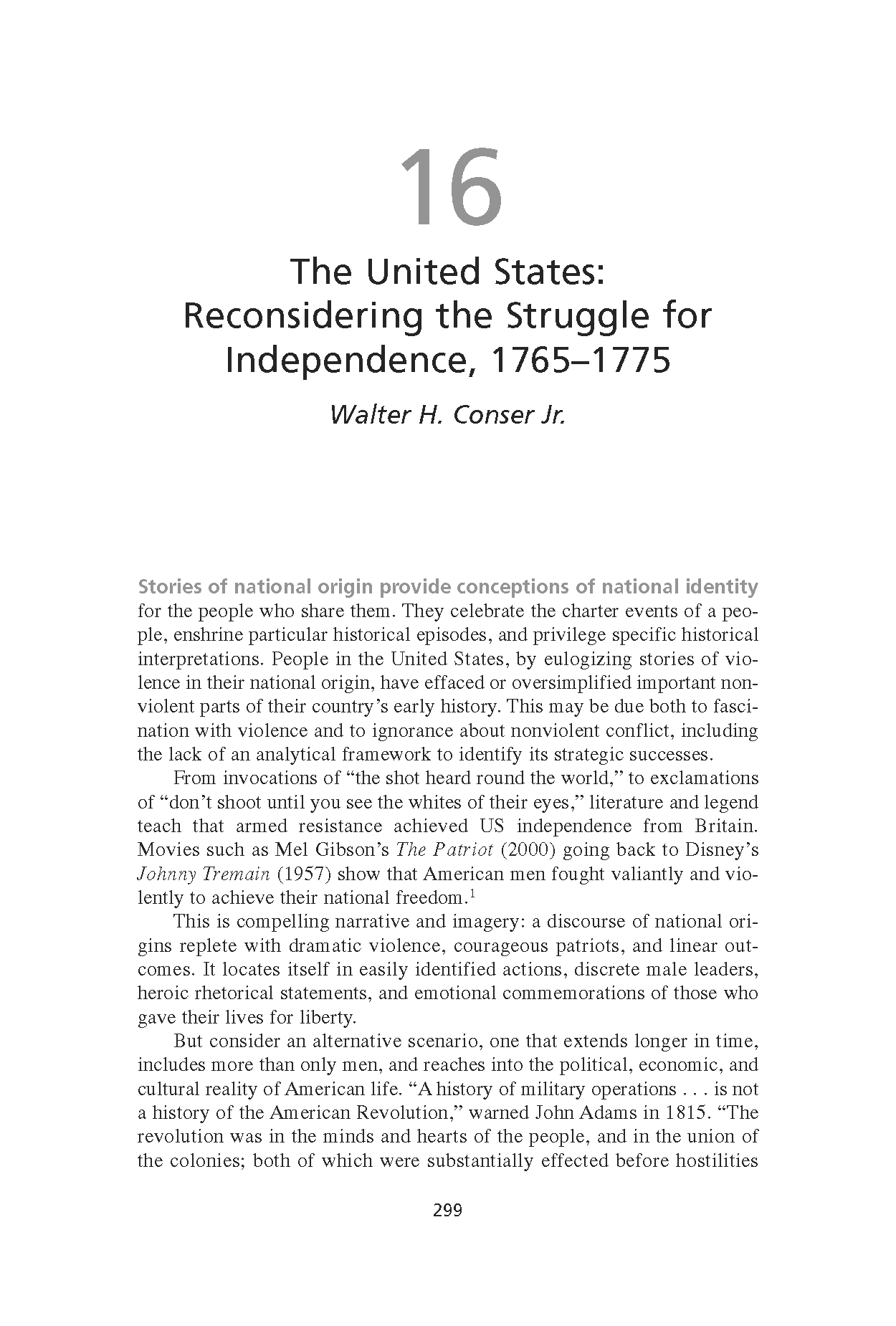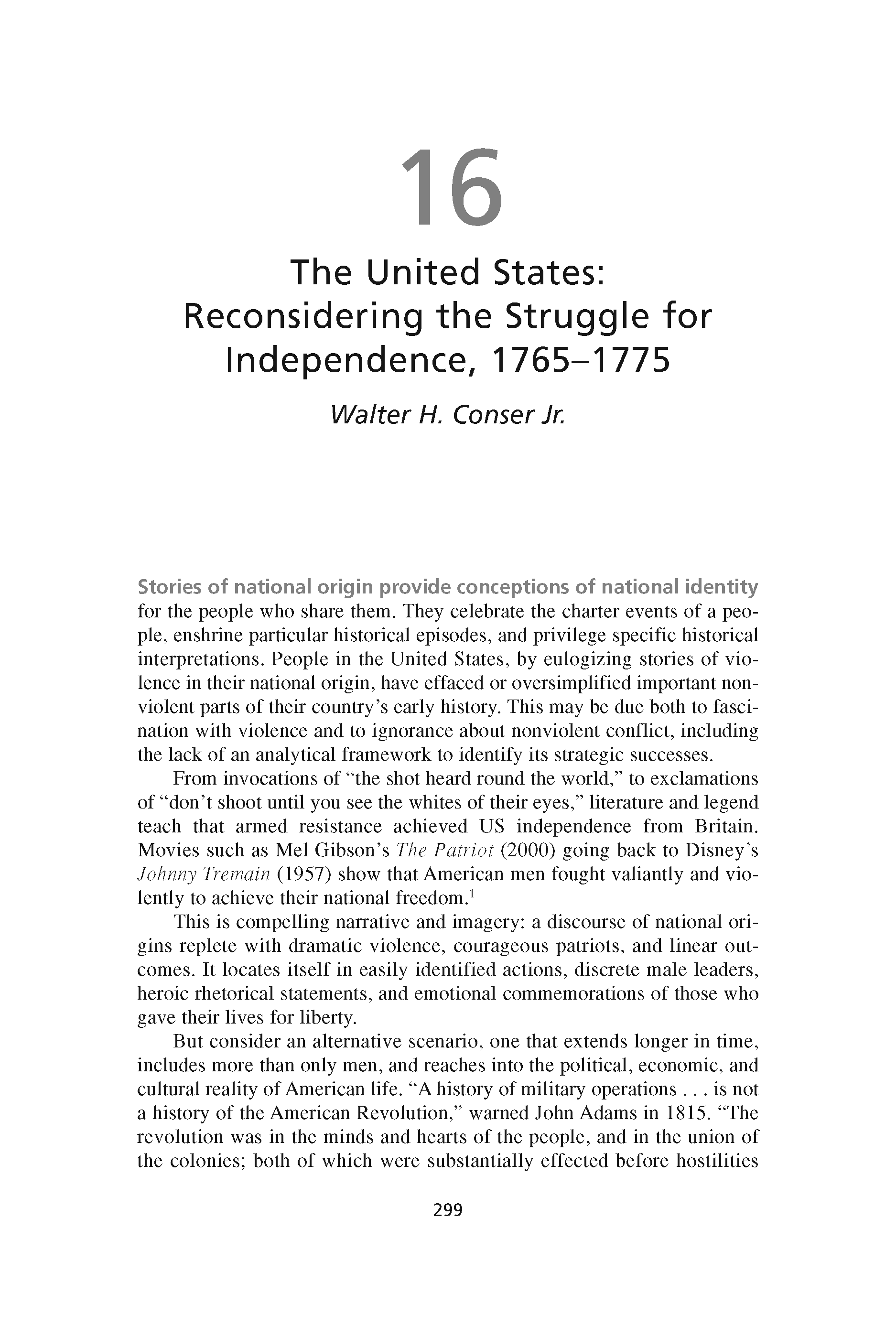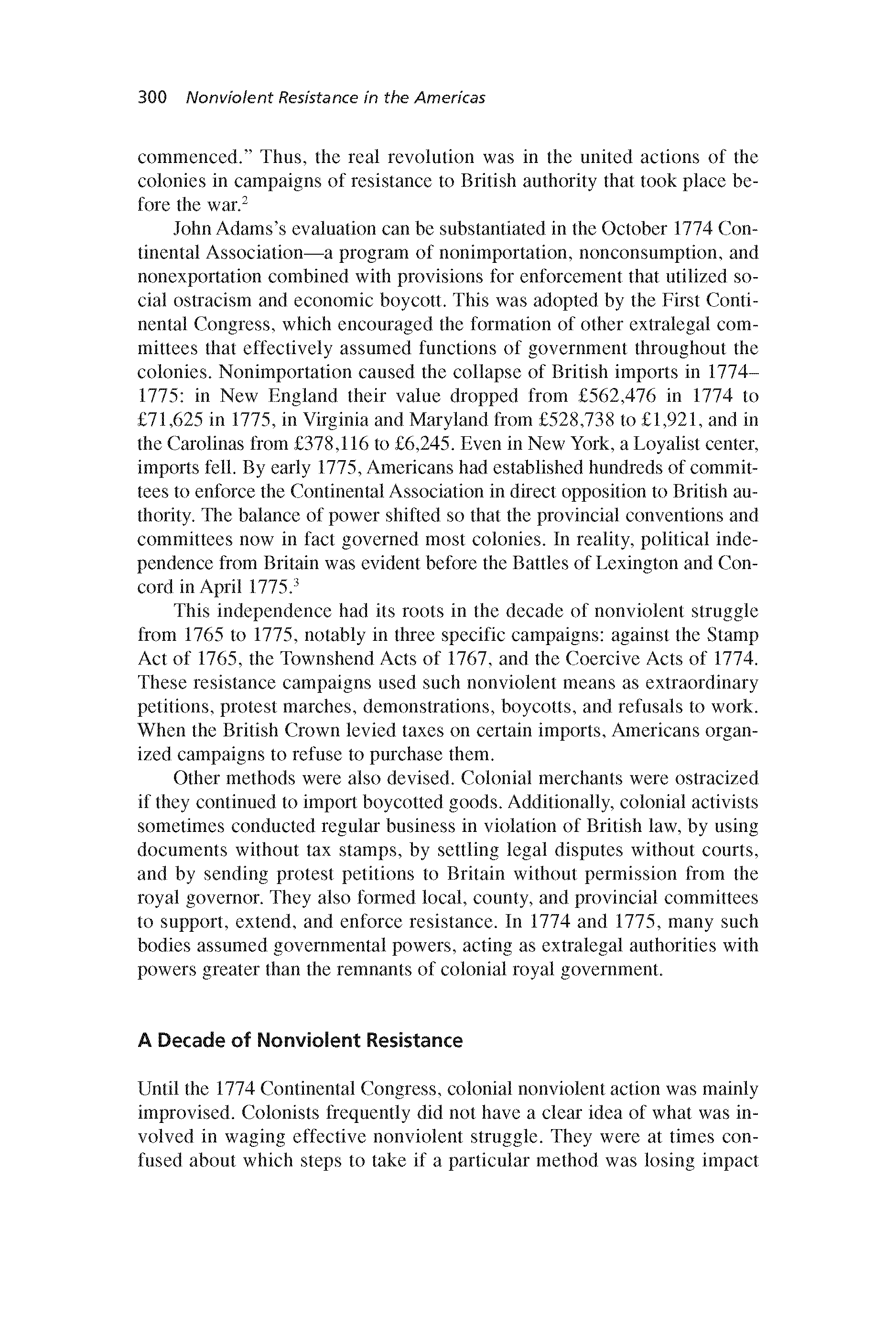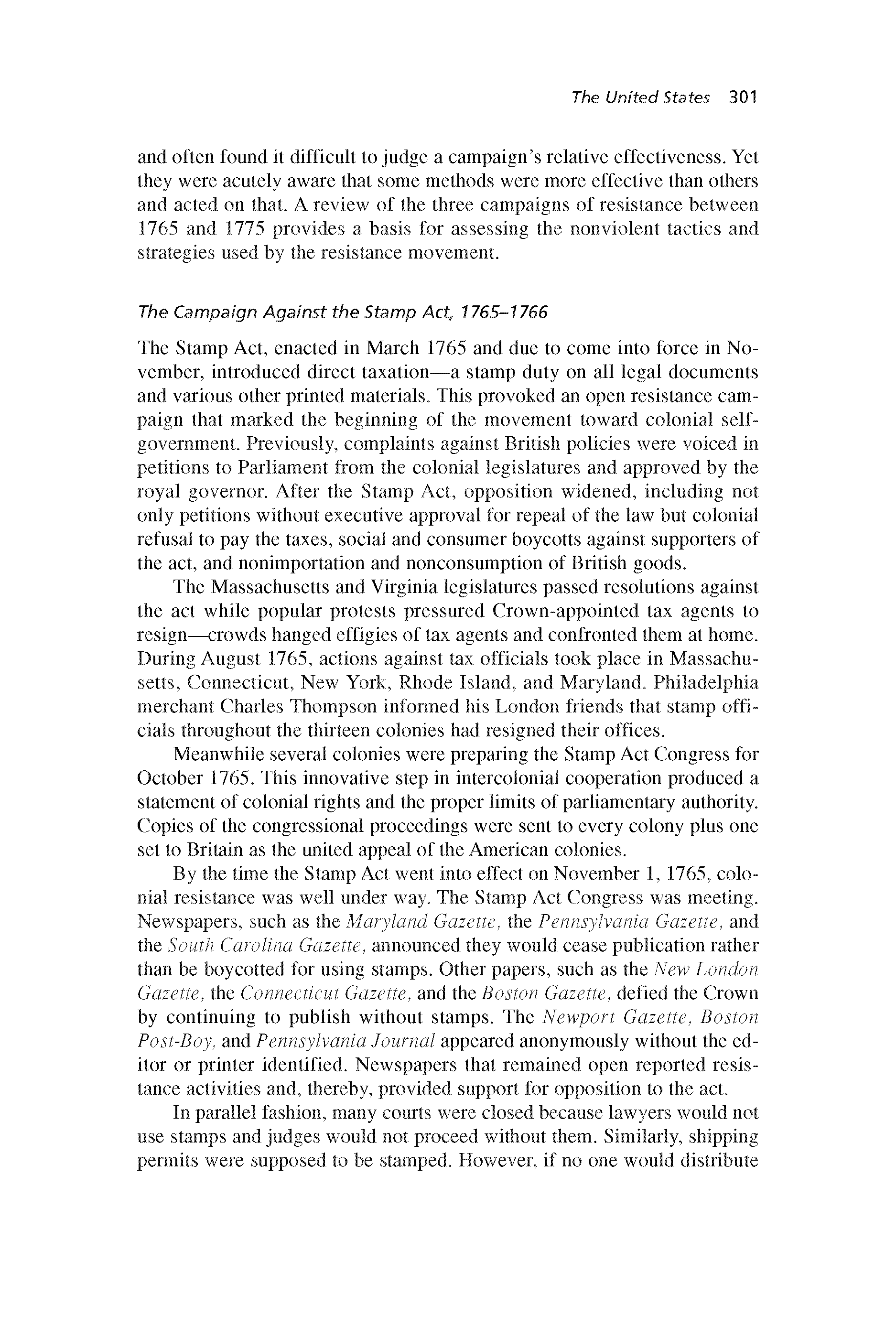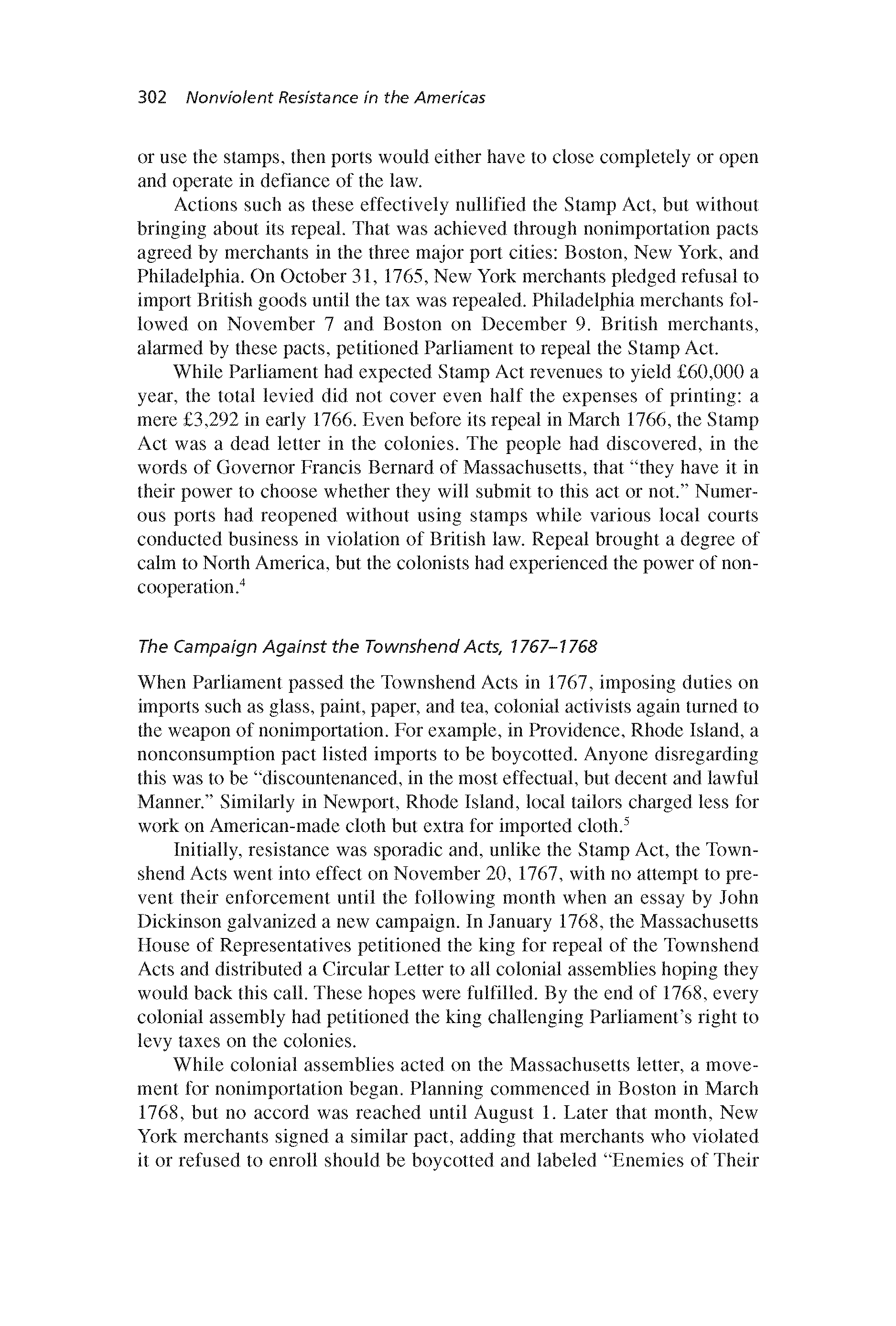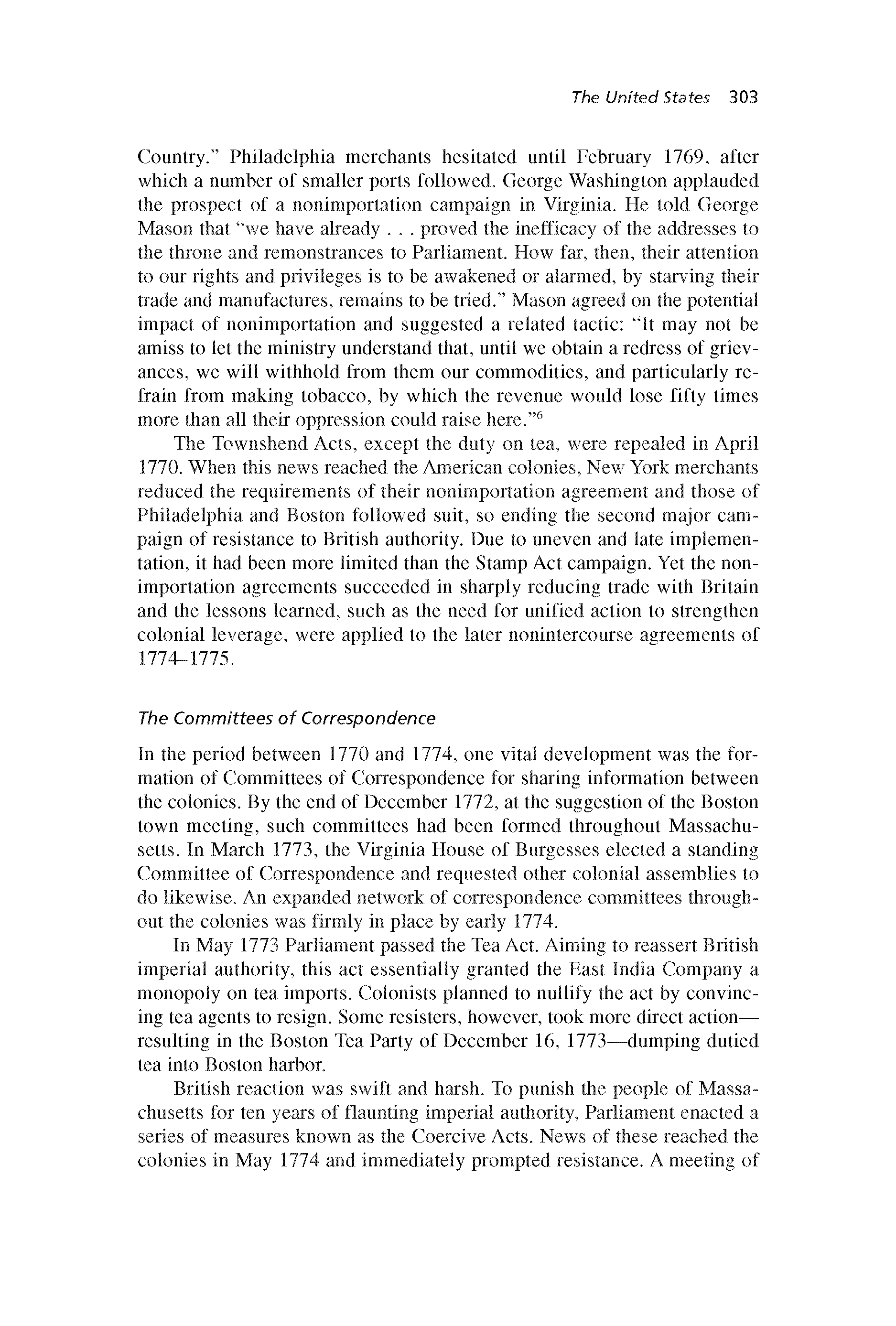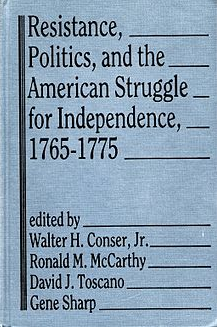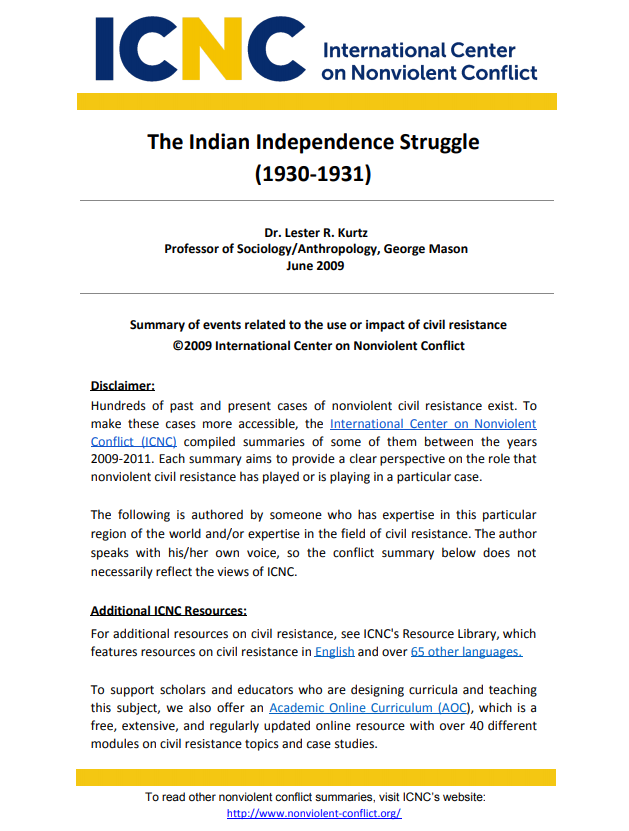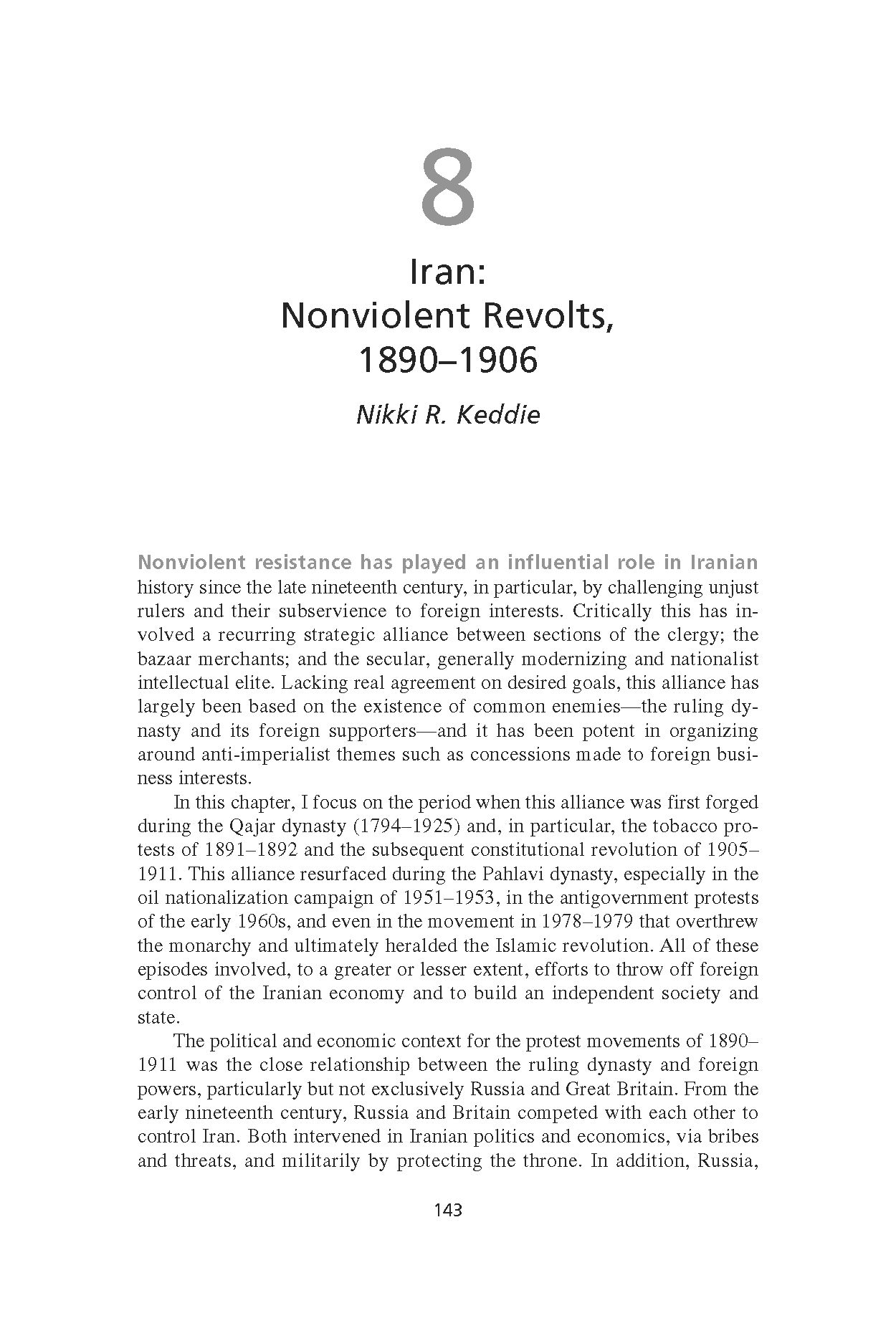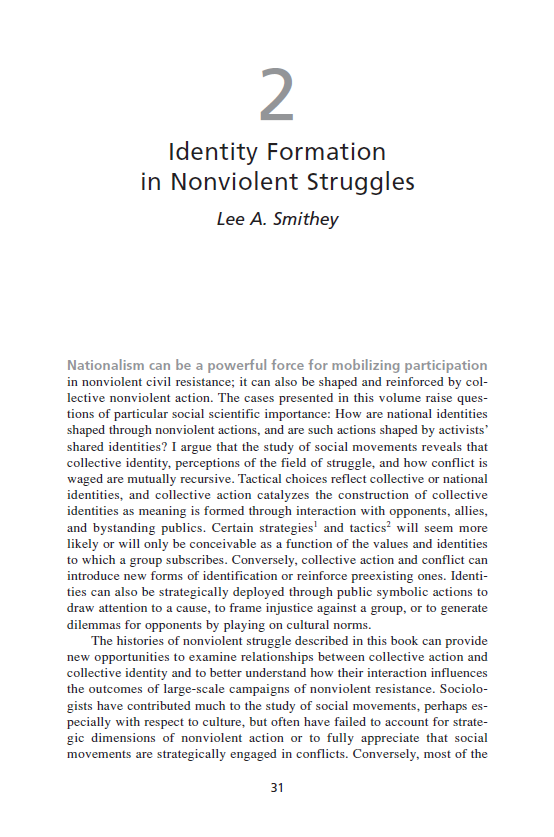The United States: Reconsidering the Struggle for Independence, 1765-1775 (Chapter 16 from ‘Recovering Nonviolent History’)
Stories of national origin provide conceptions of national identity for the people who share them. They celebrate the charter events of a people, enshrine particular historical episodes, and privilege specific historical interpretations. People in the United States, by eulogizing stories of violence in their national origin, have effaced or oversimplified important nonviolent parts of their country’s early history. This may be due both to fascination with violence and to ignorance about nonviolent conflict, including the lack of an analytical framework to identify its strategic successes […]
From the book ‘Recovering Nonviolent History: Civil Resistance in Liberation Struggles’, 2013
